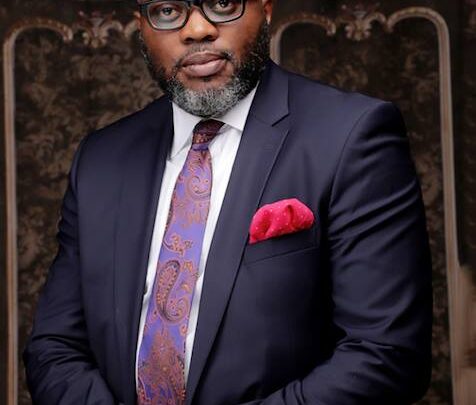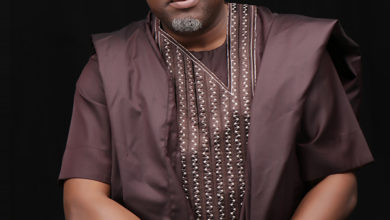
Life is indeed short. Even a 100-years old person wonders if this is all they get out of it. They look back at their past like it was only yesterday when they were youths bubbling with life. Some are lucky to remember when they were mere children. I study many people who have attained their 70s and 80s lately and if you watch closely, they live life like today was going to be their last days. The uncertainly grows as time elongates. The recklessness of the past is often regretted. But check it, we who are in our 50s look back to the energetic years when we were in our 20s and 30s. Everything drifts away so fast, and suddenly we realise that some of our abilities have gone forever. Most people wonder what they’ve done with their time. Time is always the enemy. The best one could advise is that we try use our time most productively, most positively, not only for ourselves, but for humanity.
I’ve been thinking about the shortness of human life – even for those who are lucky to live ‘long’ – vis a vis the life of a nation. Especially for fairly young nations who have been thrust into this race for development where their citizens often compare their achievements with those of much more experienced countries. If 100 years is nothing in the life of a single human being, how much could it amount to in the life of a nation? I am thus taking a historical view of development, sharing what I know with readers.
Let me state upfront, that I am not making excuses for our failures as a nation. Indeed, there are nations younger than Nigeria that have been able to make real progress since their independence. Many point to the United Arab Emirates, Botswana, and some of the countries of North Africa. These are valid observations. But every country’s history is unique. We can point to the effect of corruption in slowing down our growth and ascension to developed country status. That is usually the excuse. But I would rather invite us to the back of the stage – to study our sociopsychology and why Nigeria is at this point today.
Let’s go back to January 1, 1900, at the turn of the century, when the Royal Niger Company owned by George Goldie decided to sell Nigeria to the government of the United Kingdom. Goldie relinquished the ‘charter’ he had obtained from the British Royal Family to trade in Nigeria under the imprimatur of the Crown, and to therefore share profit on a yearly basis. Goldie was from a family of smugglers in the Isle of Man, United Kingdom. His business was to smuggle products in and out, making super profits from his engagement with Nigeria. He started this somewhere in the middle of the 19th Century (about 1860). He sold back the territories of north and south ‘protectorates’ of Nigeria because he couldn’t resist the incursions of the French from the west and north of the country (today’s Benin and Niger Republics), and the Germans from the East and NorthEast (today’s Niger, Chad and Cameroun). We can still see the vestiges of those incursions today. And so, for the sum of £865,000 Nigeria was sold as a chattel in 1900. This is a mere 125 years ago.
It was a time we didn’t have our own sovereignty. Almost every Nigerian had no sense of Nigerian-ness and couldn’t defend their own country in the comity of Nations. We could as well be moving around with tabular rasa minds as far as nation building is concerned. Now, I don’t believe we should fly off on a tangent as a result of this development. ALL nations – including our colonial masters – were created by internal or external oppressors. The bitter truth – which we must all quickly get used to – is that we were corporately conquered and captured (every nation and tribe contained within the state called Nigeria). The world was changing rapidly at that point, and it was a rule of force. Many of our constituent nations protested and some fought bitter wars. But they couldn’t match up to advance weaponry from Britain, which had developed the first machine gun with which they mowed down thousands, perhaps millions, of our ancestors (the cannon). There were no United Nations or other global bodies at that time, to articulate the views and rights of weaker peoples and minorities.
It is extremely important to understand that context in the 1900s otherwise our understanding of our situation will be skewed from get-go. Conquered peoples don’t fulminate and pontificate. They keep quiet and seek for opportunities for their own liberation. And in the course of barely a decade many things were unfolding. We also had communal crises and wars. The Yorubas for example had the Kiriji War between 1876 and 1893 right under that colonial rulership. Some of the weaponry was procured from Europe, hence the name of the long, bloody war among brothers. This distrust spread among nations and tribes as they were being brought together by force under European rule.
Barely 14 years after the British government purchase of this land – not for entirely altruistic reasons but for their own exploitation mainly, a world war started. Europe went mad and drew African nations under their control into that war. The German control of Cameroun was ceded as a result of that war to the French. The war ended around 1920, and Europe sought to pick up the pieces of a global madness. It was as soldiers returned to their countries that they carried back the Spanish Flu, which killed millions around the world – including Nigeria. By 1922, a parliament was formed in Nigeria – to begin to involve local chiefs in the governance of this space called Nigeria. But colonial rulership was tight and unrelenting even though we saw the beginnings of self-rule. Imagine you lived around this time. How much say would you have in the running of the affairs of your country? Mind you there was not much technology, much less social media that now gives everybody a voice. We have a big problem today, as we disparage our country and leaders just because we can. And this attitude could be deleterious because of the very progress that we desire.
The world had barely 19 years to breathe before another world war started in 1939. Nigeria was under tight colonial rule for this period. The resources of African nations were rapidly exploited for the rebuilding of Europe. In fact, just 9 years after the 1st World War, in 1929, what is known as the Great Depression started, with the big economies of Europe and America suffering some of the worst levels of unemployment, crimes, stagflation, and total economic collapse. The Empires of Britain, France, Spain, and to a lesser extent, Portugal lorded it over Africa as their vassal during this period. In Nigeria, we started to have a build-up of western-educated people who started getting into governance, but their voice was weak still. We started to have the beginnings of the Press, led by folks like Herbert Macaulay.
The commencement of another global madness in 1939 was another setback for countries like Nigeria. Thousands – perhaps millions of our forefathers – were conscripted into the ‘Hitler War’, of which they knew nothing, and put forward as ‘Frontier Force’, to be cannon fodder to colonial soldiers, in north Africa as well as Burma and India. The few who returned were scarred for life by 1945 when the war ended. It was two years after that the north of Nigeria was incorporated in the self-rule via parliament. I hope readers notice how rapidly things evolved. Pray, if an individual finds it tough to achieve a lot in two years, how much more a nation?
Now, in 1944-1945, something happened on the global scene. The USA which didn’t join the 2nd World War until 1942 had been a deciding factor in the ending of the war, and the dropping of the H-Bomb in 1945 was the terrible assertion of her strength. In 1944, the Bretton Woods meetings were convened for 44 of the world’s most-powerful countries with USA dominating the discussions. It was agreed to create the World Bank and International Monetary Fund to guide global finance and lend money to ailing nations. more importantly, the US Dollar took over as the world’s global reserve currency – from the British pounds. Britain was prostrate before America and needed funds for rebuilding. Overnight, the Pounds was forced to devalue by 60%, eroding the confidence of countries which had kept reserves in that currency. They moved reserves into the US Dollar, which was then backed by Gold, at $37 per ounce of Gold. The Americans assured any country which kept reserves with them that their funds was worth its weight in gold.
But by 1971, Richard Nixon reneged on this gold-backing and basically told every country that they were on their own as the USA will simply print dollars to meet any obligations. He instructed the then US Treasury Secretary to ‘defend the Dollar, by every means necessary’. And by this, the gold-backing was ended by fiat. This move has become central to the way the world is being run today. In 1945, the US asserted its strength and over the years that followed, that country put pressure on European countries like Britain, France and Spain, to relinquish their control over African nations. it was only logical. Britain couldn’t be borrowing to rebuild, while the rest of Europe were at the mercy of the US-funded Marshall Plan, while they held on to cheap real estate all over the world. At that time, the British Crown owned more than half of the land in the world! So, the USA was central to African nations achieving their independence starting from 1956 and rapidly into the 1960s, even though this is often never mentioned or countenanced. The push for African independence was however not born out of mere altruism or some desire to see African nations as equals – as could be gleaned in that leaked conversation between Richard Nixon and Ronald Reagan where they mocked African leaders as being shoeless.
Back to Nigeria. After a decade and half of more colonial rulership since the Second World War, and a flurry of events where Nigeria’s Nationalist leaders engaged in debates back and forth in Nigeria and London, we got our independence in 1960. Some other African countries were not so lucky, like Kenya, Angola, Mozambique, and South Africa. Some of these countries fought very bitter wars to get their independence. Anyhow, Nigeria got independence in 1960, and we were giddy with joy. But remember, nobody should be under any illusion that we had arrived and that we were now at par with the most powerful nations of the earth. The reception given to our first Prime Minister and the ‘golden voice of Africa’, Tafawa Balewa, in 1961 by the Kennedy government was instructive. The Americans were curious. But that curiosity soon gave way to disdain – and in some instances – racist rhetoric and narratives. The Americans too were battling race issues in their backyard – a problem that was perhaps more serious than the issue of courting African leaders away from their colonial masters. It must be noted that the French were less compliant in granting independence to African countries as they sabotaged many recalcitrant ones like Guinea, and Mali, and made the rest sign binding agreements that sees the French still lording over them till date. Are we pragmatic and humble enough to notice and bank our advantage in this regard? Do we understand and appreciate why Nigerians have a lot more control over their own economy today – including our own currency – compared to our Francophone counterparts?
Back to Nigeria once again. Independence acquired in 1960; we adopted the British Parliamentary system. We were obligated somehow to follow our ‘masters’. And parliamentary system was relatively cheap. Plus, it helped to simply harness our best, our superstars, our educated folks, and our chiefs to be representative of the people at parliaments. But we missed one little detail; these our best, most-educated folks and chiefs were literally worshipped by their constituents. Some of them were gods. And so, the usual parliamentary debates didn’t go well with these superstars – some of whom were not only well-educated but were embedded for years in British families hence their perfect English dictions. It was only a matter of time before the parliamentary experiment started to really unravel, starting in 1962 from the Western House and the infamous Operation Wetie – committing of arson on state assets and opposition members. In fact, we could roll back a bit to when – as a result of north-south arguments over the ideal date for independence, the likes of the Sardauna were embarrassed in Ibadan and vowed never to step foot there again – which he never did until he was assassinated in January 1966.
My point in this article is to hopefully show that we haven’t had much breathing space in this economy – at least not as much as we sometimes think we have. Our attempt at self-governance totally collapsed by 1966 when some Majors in the Nigerian Army planned and conducted a bloody coup, which saw some of our ‘gods’ murdered in cold blood. Great leaders like Akintola, Ahmadu Bello, Tafawa Balewa, and Okotie-Eboh were liquidated in one day. Pandemonium had set in, and it was only a matter of time before Nigeria were into a costly-in-terms-of-human-lives civil war, from 1967 to 1970. It was just 7 years after independence, not enough time to plan and build much infrastructure or lasting legacies. It looked like for Nigeria, the young nation, it was one step forward and three backwards.
Well, the war ended in 1970 – though the embers still simmer till date. Some say Nigeria has not done proper reconciliation the way South Africa did. Nigeria ran the military governance for another 9 choppy years, part of which was again fatally marred by the assassination of another great leader – General Murtala Muhammad – in 1976. It was a terrible period of grief for most Nigerians in February 1976 when the enigmatic leader, who had started some sort of pro-people revolution was killed in Ikoyi, Lagos. The period remained tense even as the perpetrators were apprehended and processed for firing at the stake in Bar Beach, Lagos, as used to be the practice. Less than ten years earlier, in July1966, a bloody reprisal coup had happened which took the lives of the Head of State, General Aguiyi Ironsi, and Colonel Adekunle Fajuyi. All these is to depict just how interesting life has always been in Nigeria, with different incidences depicting danger, excitement, anticipation, surprises, happening in quick succession. One wonders how much time we have really had to plan with. And in all these, the real tragedy lies in the discontinuation of policies as new leaders take over in short succession.
The longest period we have had as a nation to plan and chart some sort of economic development has been since 1999 till date (25 years). The period of 1979 to 1999 had only 4 years of democratic governance (1979 – 1983). Nigeria moved away – through the work of a Constitutional Conference in 1978, towards an American-style presidential system of government, not because we sought to be wasteful, but based on the very terrible experience with parliamentary system in the first Republic. The horrendous killings of our leaders were relived, and the dastardly period of our civil war was remembered in that Conference. It was agreed that Nigeria will do much better with a presidential system where a leader will emerge with a national imprimatur as against the Primus Inter Pares arrangement that comes with Parliamentary. The expensive nature of Presidential system of government was thought to be a secondary issue. We may complain a lot about our system of government today, but what may have been more expensive for national development is if we had rapid change of governments like they have had in parts of Europe – UK, France, Italy. Now, those countries can afford rapid change, since they have established a solid structure. A toddler nation like Nigeria cannot.
And so, in the last 25 years what have we seen. There have been increasing complaints about political corruption, and rising distrust of our governments at different levels. But this vociferousness could also be the result of the development of social media over the years, and the ubiquity of communication gadgets because of the GSM advent in 2001 (just two years after a return to democracy). What has happened is that failures in government are amplified, while successes are played down as nothing. Yes, there has been corruption, mismanagement, lack of accountability, and overriding ego in government in recent decades, but that does not fully explain why we haven’t transformed our country to Dubai. Other factors which are responsible for where we are include:
- Constant badmouthing of our own country by ourselves. This has proven very costly to our quest for development.
- Lack of appreciation of our modest achievements and discountenancing them because of politics.
- Wanderlust culture among our people, which has seen many stuck in different parts of the world, where many have fallen into the dark economy. Most Nigerians who leave their country are pulled by simple calculations of better earnings abroad, as well as a desire to just run away from home. Most people had jobs here before leaving, only wanting something more. The downsides were never explained to them.
- Historical disadvantages like colonialism because we had to learn new systems of governance, economics, and social arrangements from the west. We were reeducated and it takes time to gain mastery. Still, we Nigerians have the privilege of being the largest experiment in self-governance among black people. We must make something of it.
- Culture shock among our people. I described the situation that the colonisers met above. Now, most Nigerians were used to feudal systems in the advent on colonization. Till date, there are those who go around with that same feudal mindset – those may be the ones who believe the resources of state is theirs to appropriate the way they please. We also have politicians and businessmen who go around with battalions of armed soldiers and policemen just to bolster their ‘bigmanism’. Social media protests will help to gradually eradicate these excesses and take us eventually almost to where European societies are.
- A silent hierarchy among humans by which black people occupy the very base. This silent hierarchy is still in effect and as black people we must be ready to work twice as hard to move ahead. It is painful, but this is our current reality. Perhaps in time, we could outlive the burden. For now, humility, unity, courage, realism, responsibility, a strategic mindset, a sense of history, are necessary gifts that we must build among ourselves to succeed. And our ambitions must be realistic and pragmatic.
Young Nigerians especially must understand that negative narratives about Nigeria are perhaps a worse setback against the country than corruption and mismanagement. We have ended up creating a bogeyman of our country – a place were people fear for no reason and where investments see as pariah. Thankfully things are changing, and myths are being bust daily. You see, even a retard wakes up and develops capability from time to time. Nothing stays the same forever. We can continue to organize our country until we suddenly take off properly one of these days. If we also stand back and consider our country, we are certainly not where we were 10 years ago, or 20 years ago. We are making progress. Many state capitals have transformed their infrastructure, but we now need to start moving to the rural areas. Nigeria has also been able to finance hundreds of thousands of young people to universities abroad – in many places we are 4th behind countries like China, India, Vietnam in terms of foreign students in many top and medium level universities abroad. The difference with us is that unlike the rest, Nigerians ignore the capital outlay they had to pull out of this country and remain abroad after their studies – sometimes still hating the country which made their sojourns possible. But then, we can tap into diaspora remittances for the transformation of our rural areas and the growth of our economy. Some people like to say it is finished for Nigeria, but I’m certain that her glory is just around the corner.
A summary of Nigeria’s significant timelines:
1860 – Commencement of trade by George Goldie
1900 – Sale of Nigeria’s north and south ‘protectorates’ back to British government for £865,000 by George Goldie’s Royal Niger Company
1914 – Amalgamation of Northern and Southern Nigeria
1922 – Commencement of Western Nigeria Parliament
1947 – Northern Nigeria incorporated with general parliament
1960 – Independence achieved
1962 – Chaos in Western House. Operation Wetie
1963 – Nigeria becomes a republic
1966 – Two bloody coups. January and July. Two changes in government. Stage set for civil war.
1967 – Civil War commences
1970 – Civil War ended
1973 – Yom Kippur War. Nigeria joins OPEC
1974 – Good fortunes in crude oil for Nigeria
1975 – Bloodless coup topples Gowon
1976 – Bloody coup ousts Murtala Muhammad
1978 – Constitutional Conference agrees to adopt presidential system of government
1979 – Return to democracy (2nd Republic)
1983 – Military returns
1985 – Another military coup
1993 – Another military coup
1998 – Military leader and key political figure suddenly expire
1999 – Return to democracy
2025 – Still on the longest democratic run
This short history is similar and therefore applicable for most sub-Saharan African nations, most of which has gone through similar or worse upheavals as Nigeria – political instability, military coups, foreign interventions, civil wars, corruption, culture shock… the whole shebang. There have been exceptions though, but one could explain that scale is a factor too. Nigeria cannot be compared with Botswana, Namibia (still mostly owned by Germans), Seychelles, Mauritius, or Rwanda. The scale is different; the challenges, more complex. The lesson is that it could take a long period in the life of a nation to ‘take off’ and get to paradise. It could also take a very short period. A nation can gestate for decades and then one singular event makes her take off like a meteor in a short period of time. Development is not a linear equation. And it is not to be taken for granted. Because we have seen many countries collapse even after they hit the topmost of their development. Argentina is an example.



